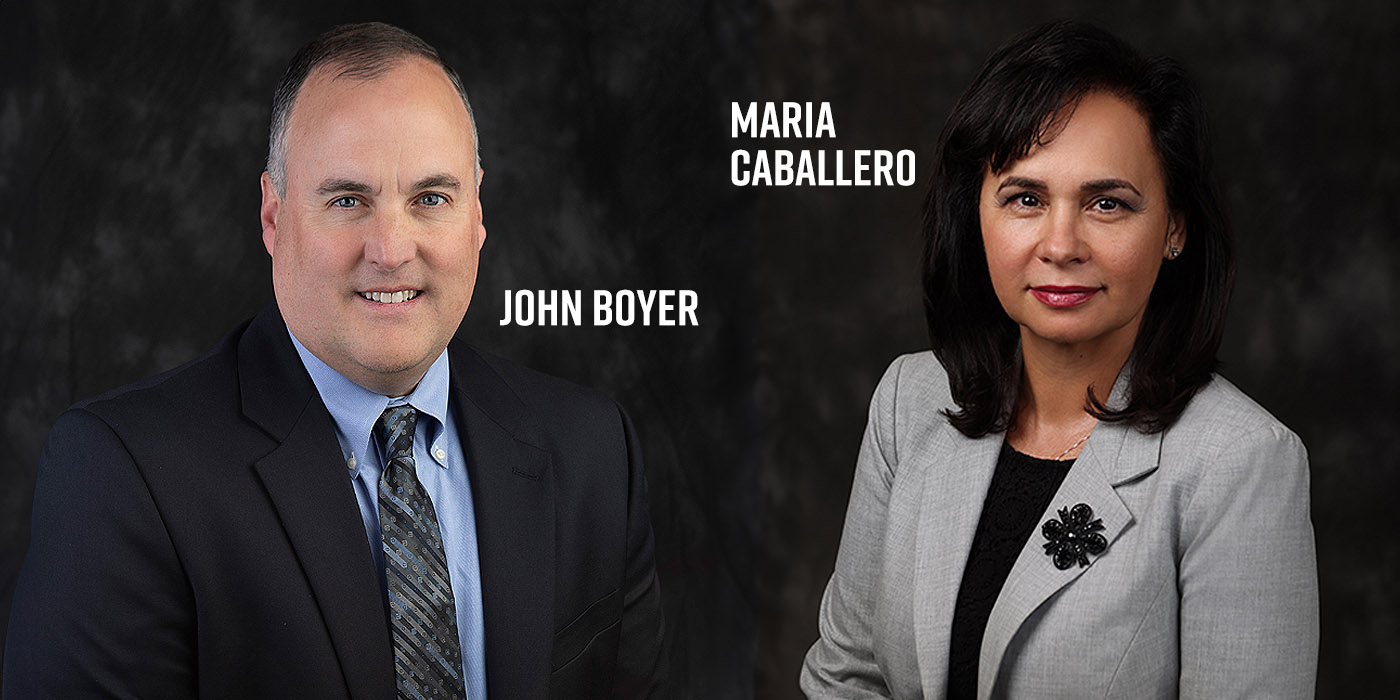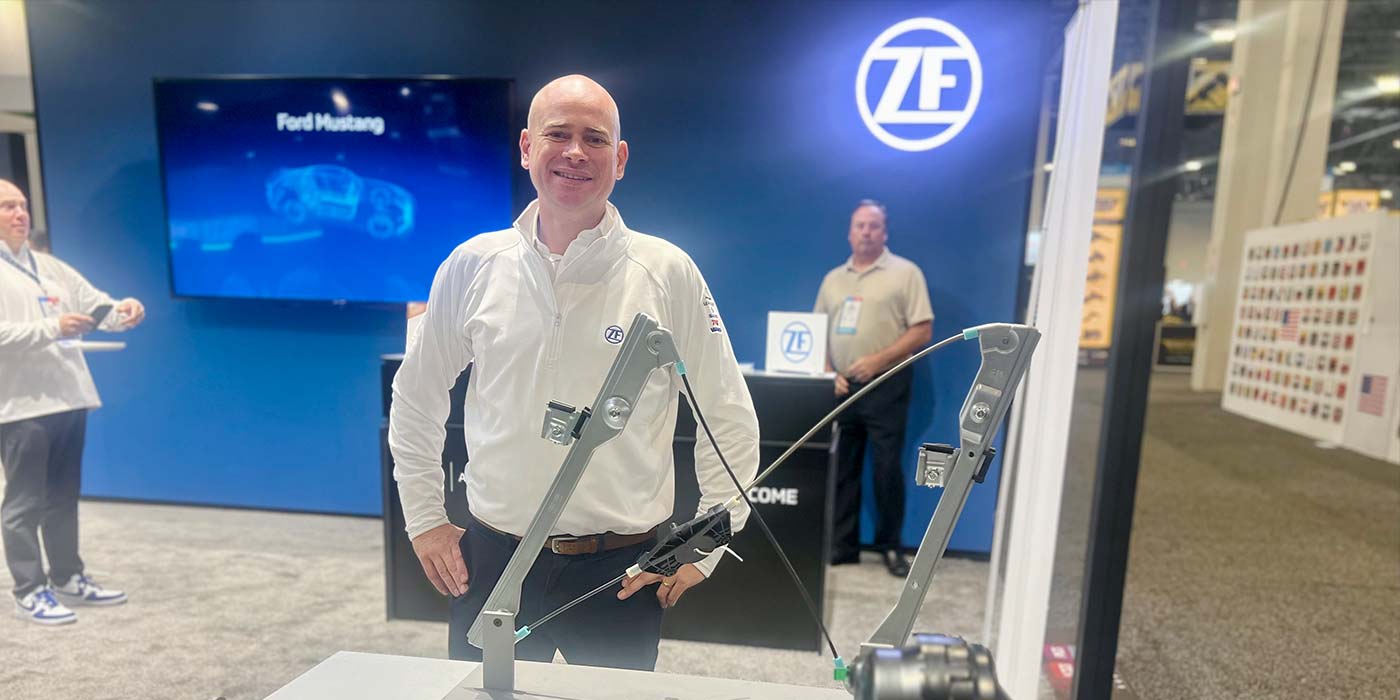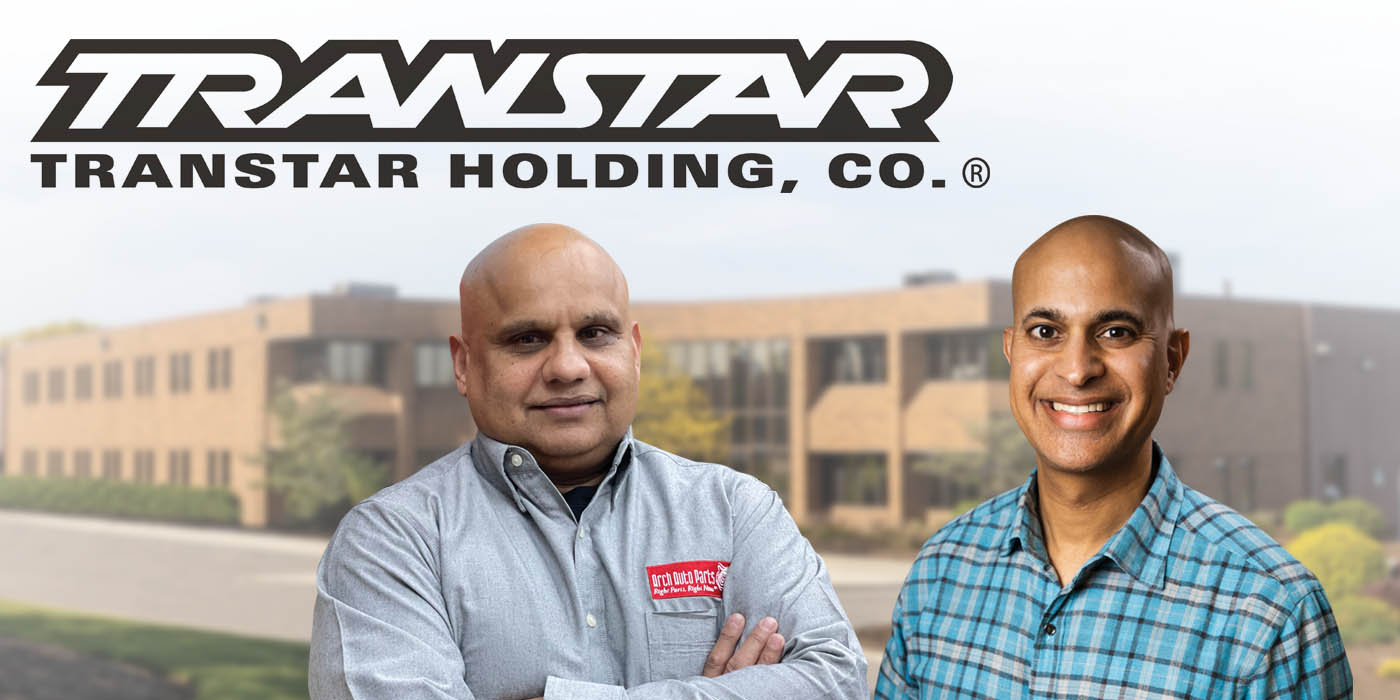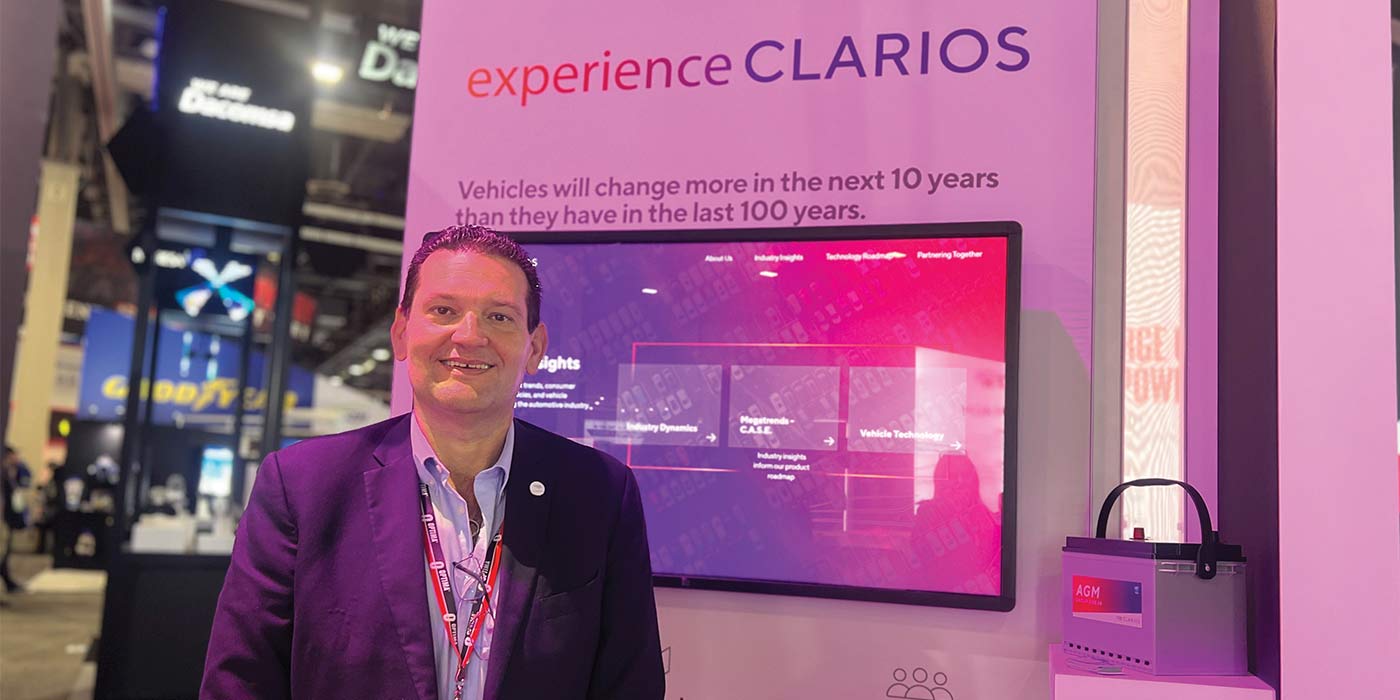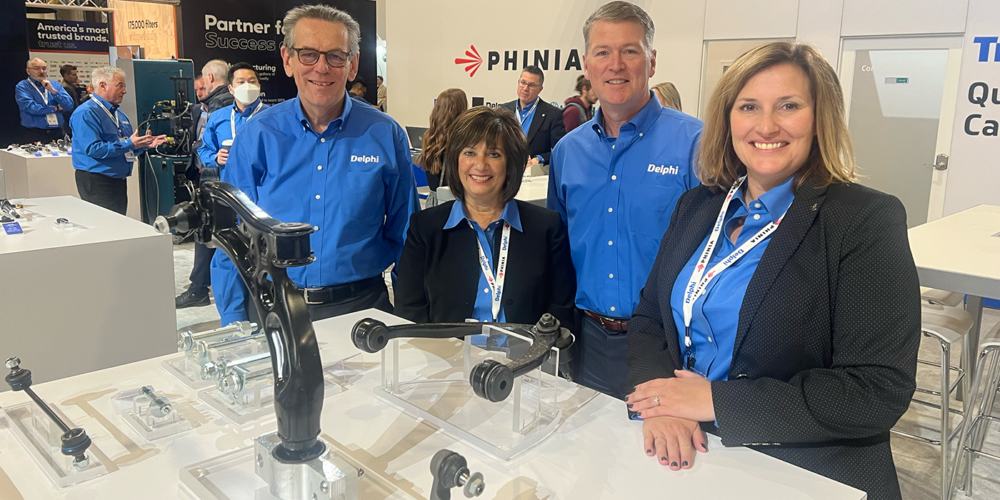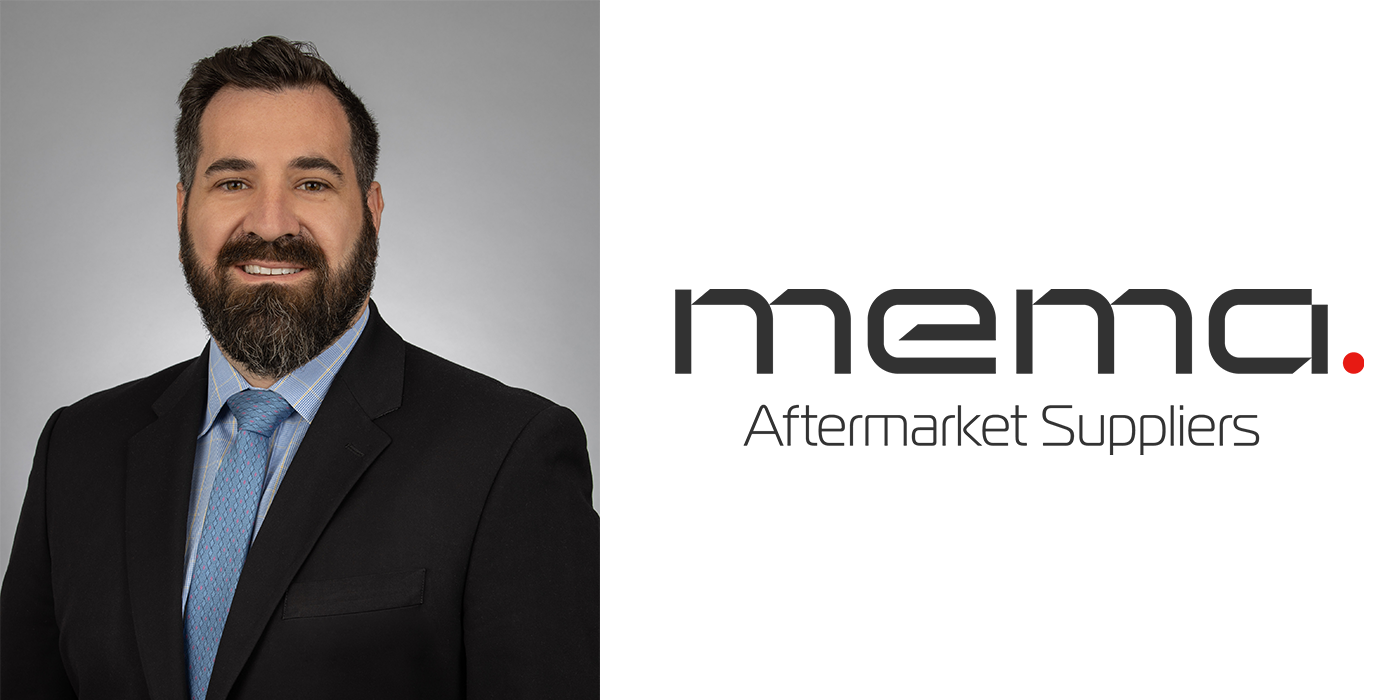
NASHUA, NH — The Loctite brand name has been associated with chemical threadlockers and service chemicals since the company invented liquid threadlocker technology more than 50 years ago. Henkel Corp., which owns Loctite, had been selling its threadlocker and service chemical formulations under the Permatex name in the automotive aftermarket for years, while continuing to use the Loctite name in the automotive OEM and industrial markets.
In 1999, however, Henkel sold off the Permatex brand. The company formed an agreement with the new owners not to compete in the aftermarket for three years. That agreement expired in 2002. Now, Loctite formulations are once again exclusively available to the automotive aftermarket under the Loctite brand name.
After a three-year hiatus, Henkel has re-launched the Loctite brand in the automotive aftermarket with a new look and an innovative and exclusive product line.
As General Sales Manager for Henkel Corp.’s Loctite Automotive Aftermarket Division, Lou Gaudette is responsible for all of Henkel’s aftermarket activities in the U.S., Caribbean and Canada. He directs five area sales managers who manage 17 manufacturer’s representative agencies as well as a wide variety of customer support activities in the field. Gaudette is also charged with general sales management responsibility for the Loctite Original Equipment Service Parts business. He works with major OEM accounts in the U.S. and Canada to develop programs and provide service parts for dealer networks in the automotive, heavy-duty truck and heavy equipment market.
Gaudette has been with the company for more than 28 years, serving in management positions with various company divisions including industrial, electronics and automotive. Prior to joining Loctite in 1977, he worked for Honeywell Information Systems as a senior sales representative in the Boston area. He was selected to participate in the Loctite Sales Leadership Conference on four occasions and is a recipient of the Loctite President’s Circle Award.
Read on as Gaudette brings us up to speed on Loctite’s re-entry into the marketplace.
Now that Henkel has re-launched the Loctite brand, how did you handle the issues of branding and name recognition that resulted from your hiatus?
Well, the Loctite name has always offered a lot. And in spite of our absence from the aftermarket, we continued to enjoy the loyalty of professional technicians, many of whom continued to purchase Loctite products from our industrial distributors. Our brand recognition has always been very high within the automotive industry, primarily because so much of the product is used in the OEM side of the business. Our products are specified by automotive and heavy-duty OEMs in more than 600 production line and service applications, so the techs constantly see it in service bulletins and manuals. No other chemical manufacturer can come close to matching this OEM endorsement in our category. We take full advantage of this by providing an aftermarket product line that mirrors our OE assembly applications. This way we can be sure that we have the right products available when those assemblies need to be repaired. Our distributors and service technicians are aware of this and have readily accepted the return of our Loctite brand.
In the aftermarket, the Loctite name has been used as a generic term much like the brand names Xerox and Kleenex have been used. With this in mind, how does the company differentiate itself from competitors?
It’s interesting because our customers are doing the differentiating for us. We were just at a heavy-duty truck show in Boston and there were technicians and dealers coming to our booth to say that they want to use Loctite products because it’s what the manufacturers recommend. That’s why we are constantly promoting the fact that Loctite products are only available from Loctite through authorized Loctite distributors. Loctite formulations are no longer used in Permatex products or in any other brand.
We also lean heavily on our innovative capability and overall corporate resources. We now offer more than150 Loctite SKUs in a variety of product formulations and application methods.
What has the company been up to the last few years? Any new products/innovations/advancements you’d like to tell us about?
As I mentioned earlier, one of our key points of difference is innovation. We’ve always relied on product innovation to stay ahead of the game. Not just in new products, but new application techniques as well. Our OEM division is constantly meeting new challenges posed by carmakers and their production lines. And we’ve taken that same approach to the aftermarket.
We focused on what the technician truly needs. We realized that when technicians are working, it is usually underneath something – on a creeper going under a car or on a lift. Most of our products were liquids, and to trying to use a liquid overhead or in a very tight corner can be difficult.
We looked at our formulations capability and worked to develop a semi-solid form of these materials. First, we began with threadlockers and then branched out to gasketing materials and other compounds. The end result is truly an innovative approach to the business. We put our product in a stick form, which the technician could now apply to a part or fastener as easily as you would use a lip balm. Our treatment sticks are clean and convenient and fit right in your pocket. You can also apply our product in advance without fear that it will drip off before assembly. This saves a lot of time on big jobs because it allows you to prep multiple fasteners ahead of time.
Does your re-launch of the Loctite brand include going to markets other than automotive service?
We are continuing to expand our presence in different businesses under the automotive aftermarket heading. One area of concentration is the heavy-duty truck sector. Here again, we’re taking advantage of our very strong OEM involvement and the endorsements our products have for use in maintenance.
I think that this sector of the business, to a larger degree, clearly understands the importance of Loctite OEM specified products because of the size of the rigs they are working on and the nature of their business. These technicians only want to do the job once, and they know that a breakdown on the road means lost business. They want to use the right products, the ones that are specified.
We are also reaching out to the performance segment because we feel that our products fit well with tuners and DIYers. There is a lot of money invested in these markets today and it’s a big opportunity for us. By offering our products in an easier to use formulation, such as the sticks, I think we’ve taken away a lot of the confusion and concern of using liquids, not only for the professional but also for the casual user.
How are you are you marketing Loctite products now?
Advertising is our standard form for reaching out to distributors, technicians and enthusiasts, but there are other ways that we go about it as well. We are heavily involved in the NASCAR racing program. We’re one of the companies sponsoring the Robert Yates #38 M&M car. The Loctite name is prevalent there.
When we look at NASCAR, which is the largest spectator sport in the country, there is a high-level of brand loyalty when it comes to NASCAR sponsors. Of course, Loctite has always played an important role in the sport by keeping the cars together under severe race conditions. What the sponsorship also does for us is bring us closer to the fans, which in many cases are professional technicians who use our products on a daily basis. This is great for us because if they see how our products work on the track, they know we can truly meet their everyday needs for auto and heavy-duty truck repair.
At trade shows, we also give out a lot of samples so technicians can try out our new sticks back at the shop or even at home. It’s a very effective way for us to reach new customers.
Our advertising hits a wide range of industry publications but we don’t run the same ads for everybody. We target our message so that it fits the reader we are trying to reach. We’re very big on training programs and tech tips, which we’ve also incorporated into our advertising, public relations, and support activities. The more our customers know about the versatility of our products and applications, the more they can get done.
Can you talk about the current silicone RTV shortage?
Yes. The availability of RTV Silicone, which we use for a wide range of our gasketing and sealing products, has decreased substantially with the sharp increase in worldwide applications for this technology, especially in the Asian markets. All of a sudden there’s a shortage of this material and everybody is scrambling to get the product. The high demand is also pushing the price up. Chemical companies that weren’t prepared for this with an adequate inventory may have to go on allocation and raise prices. Henkel, however, has always been very effective in forecasting its business and the marketplace. Henkel’s position as a global corporation with very strong supplier relationships is advantageous to our ability to secure product for our customers. That’s why we are in a very strong position to be able to meet the needs for the foreseeable future and to ensure that our prices are stabilized.
Any final thoughts?
We really pride ourselves on being able to anticipate the needs of our customers. And that comes from our long-standing OEM business. It’s such an important part of our total picture. When we are talking to a customer, whether it’s a distributor or an end-user, we try to clearly understand their needs, so we are in the best position to provide the products they need. When you think about Henkel and the Loctite brand, it’s a company known for reliability and quality. There’s always total support behind each product that goes out. I think its very important that customers know they can pick up a phone and can get the background information and the engineering support they need to make sure they are using the right product for the right application.
Good customer service really is critical these days…
Absolutely, and that’s another part of our business that we are proud of. The professionals we have in the field are supported by a knowledgeable and talented in-house team who can answer their questions and provide information to customers in a timely manner. Henkel is a company that prides itself on anticipating the customer’s need and making sure that the product and support is there to meet that need every time.
_______________________________________
Click here to view the rest of today’s headlines.

